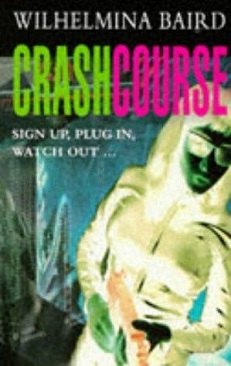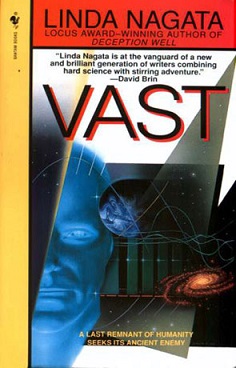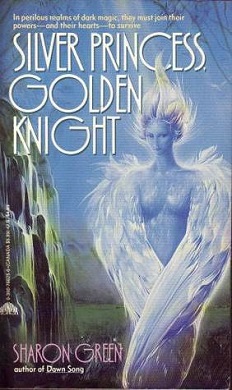
Crashcourse
Wilhelmina Baird
277 pages
published in 1993
Wilhelmina Baird is an interesting writer: wrote some short science fiction at the dawn of the New Wave (as Kathleen James), then returned in 1993 with this, a cyberpunk inspired novel with overtones of the sort of fifties satirical sf Pohl and Kornbluth wrote. She wrote three more novels, two sequels to this, then disappeared. She’s obscure enough not to even have a Wikipedia entry, so it’s unclear if she stopped writing or just couldn’t get published anymore. I vaguely remember that her second novel, Clipjoint, was hailed as a minor classic when it came out, but that’s all I knew of her writing when I first got this.
In the world of Crashcourse the population is divided in a small ruling class of Aris, slightly more Techs and Arts to serve and entertain them, with the vast mass of people being unemployed umps. Cass, Moke and Dosh are three of them, trying to earn enough (illicit) money to get off Earth, Cass as thief, Moke as artist and Dosh as whore. Caught up in a love triangle, with Cass loving Dosh who loves Moke who loves Cass, only wanting to leave if all three of them can leave together. That is, until Dosh is roughed up once too many by one of his clients and temptation comes calling in the form of an Aris with a film proposal.

